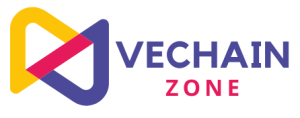Jakarta, Pintu News – Two blockchain platforms, VeChain and Algorand, are in a competitive race to win over institutional investors as they focus on enterprise solutions. Despite experiencing notable price declines in recent months, both projects continue to demonstrate technical stability and the potential for practical applications in the business world. The pressing question now is: which of these platforms will emerge as the leader in attracting institutional interest in the upcoming wave of blockchain adoption?
VeChain (VET): Price Stability Amid Market Challenges
Pintu MarketVeChain has experienced a modest price drop of less than 1% over the past month; however, it has faced a more significant decline of approximately 65% over the last six months. Weekly price movements have remained largely minimal, averaging 0.61%, indicating a period of consolidation. Currently, VET is trading within a range of approximately $0.02 to $0.03, with a robust support level at $0.015 and key resistance points at $0.039 and $0.051. Technical indicators suggest a slight bearish trend, as the Relative Strength Index (RSI) hovers around 43, indicating negative momentum. While bearish sentiments prevail, institutional investors might find opportunities for short-term strategies, capitalizing on the price stability by buying at support levels and selling at resistance.
Algorand (ALGO): Facing Short-term Challenges with Long-term Promise
Pintu MarketAlgorand has seen its price decline by roughly 4.74% over the past month and nearly 62% over the past six months, highlighting its volatility compared to VeChain. ALGO is currently priced between $0.17 and $0.24, with significant resistance at $0.29 and extended resistance at $0.36, while support is identified at $0.14 and further extended support at $0.07. Technical indicators, including the Awesome Oscillator, indicate that selling pressure remains prominent. Investors might consider monitoring the $0.14 support level for potential entry points or wait for a breakout above $0.29 to establish bullish positions. A cautious approach may help to mitigate risks associated with potential false breakouts.
Business Appeal: Which Blockchain Attracts Institutional Interest?
VeChain is designed to enhance transparency in supply chains, leveraging its VeChainThor blockchain that incorporates PoA 2.0, meta-transactions, and a stable two-token system (VET and VTHO). Its real-world applications are evidenced by partnerships with major corporations, including Walmart China, BMW, and PwC. In contrast, Algorand distinguishes itself with its scalable, cost-effective Proof-of-Stake model, and has gained traction among institutions such as the government of the Republic of the Marshall Islands and in digital identity solutions in India. Furthermore, Algorand’s involvement in tokenization projects, such as green bonds and money market funds, reinforces its infrastructure capabilities for institutional use.
Strategic Factors for Institutional Investors
Institutional investors are advised to consider more than just price and technical metrics when evaluating these blockchains. Key factors include: real-world integration—VeChain excels in supply chain applications while Algorand is focused on financial asset tokenization and digital identity; scalability and cost—Algorand’s Proof-of-Stake model ensures rapid transaction finality at low costs; and price stability and risk—while VET offers relative stability during prolonged consolidations, ALGO presents higher breakout potential alongside increased volatility. The decision ultimately rests on the specific needs of the institution: companies emphasizing logistics and traceability may prefer VET, whereas financial entities and governments are likely to gravitate towards ALGO.
Conclusion
Both VeChain and Algorand are strategically positioned to play significant roles in institutional adoption of blockchain technology. The choice between the two will largely depend on the nature of their respective business applications, whether related to supply chains, tokenized transactions, or identity verification. Savvy institutional investors will focus on genuine integration and the technical challenges each platform presents. As the blockchain landscape continues to evolve, both VET and ALGO are critical projects to monitor as they serve as conduits between technological advancements and real-world applications.

